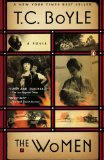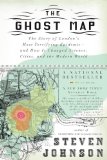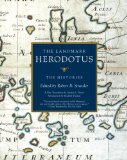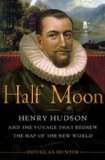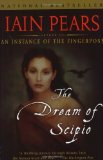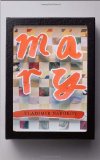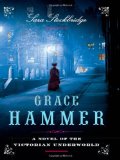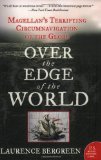Category: Books & Learning
Book Review: “Buffalo Gals and other Animal Presences” by Ursula K. Le Guin
December 30, 2009 { Book Reviews }When I was 10 or 12 years old, my mother read the short story ‘Buffalo Gals’ out loud to my sister and me. It seeped into my subconscious. I remembered little of the plot as my life stretched on, but recalled nuance, shapeshifting, dreamlike visions and a near worship of the Oregon high desert landscape I would, as a teenager, come to see as my spiritual mirror.
Book Review: “The Women” by T.C. Boyle
December 30, 2009 { Book Reviews }I have a bit of a star-struck love for TC Boyle, but this novel made my head buzz with the pestering question: ‘Why?’
The tale, told in reverse-chronological order, unwinds the dramatic coil of Wright’s libido, which apparently ran rampant and unchecked through the first half of the 20th century.
Book Review: “Arthur and George” by Julian Barnes
December 30, 2009 { Book Reviews }A mystery based on real events set during the senescence of Victorian ideals, starring the real human Sir Arthur Conan Doyle, “Arthur & George” combines literary suspense with the themes of slowly declining empire. It explores what it means to be English at a time when what it means to be English is changing faster than it has ever done so before; it glances at the accelerating evolution of change in the time of full-steam-ahead Edwardian idealism.
Book Review: “The Ghost Map” by Steven Johnson
December 24, 2009 { Book Reviews }Taut and engrossing, Steven Johnson’s ‘The Ghost Map’ is a rollicking multidisciplinary romp through Victorian London’s scientific, cultural and medical evolution. Johnson’s focal point is a devastating–indeed, decimating–1854 cholera outbreak in Soho, which becomes a crucible of the nascent field of epidemiology and highlights the stark changes in science throughout the mid-19th century.
Book Projects for 2010
December 21, 2009 | 2 comments { Books & Learning }In 2009, I made a goal to get through Herodotus’ Histories, several Shakespeare works, and some French literature. Not to mention a focus on reading more non-fiction, especially science. See how successful I was, see my plans for 2010, and share your own reading projects and plans for the new year.
Book Review: “Half Moon: Henry Hudson and the Voyage that Redrew the Map of the New World” by Douglas Hunter
December 21, 2009 { Book Reviews }All the ingredients of a wickedly delicious, ground-breaking history. The premise is delicious: The story of how Henry Hudson’s New York Harbor-discovering adventure was really a maniacal farce involving the essential hijacking of an East India Company ship and its incompatible (half English, half Dutch, fully unable to communicate with each other) crew.
Book Review: “Dream of Scipio” by Iain Pears
December 21, 2009 { Book Reviews }Iain Pears’ novel about the ebb of civilizations, virtue and evil spans almost two millennia but very little geographical space: it tells three stories set at the brink of societal chaos in the south of France. Beautifully structured, academically sound, ‘The Dream of Scipio’ is worth a read. But it might not change your life.
Book Review: “Mary” by Vladimir Nabokov
December 21, 2009 { Book Reviews }To better understand Nabokov I decided it might make sense to read him from the beginning. I already owned a copy of Mary–his first novel, written in Russian–and pulled the copy off of its bookcase last night with aims to scan the first few pages (to see what I was in for). Quick answer: “Utterly magnificent without qualification.”
Book Review: “Grace Hammer” by Sara Stockbridge
October 9, 2009 | 1 comment { Book Reviews, Books & Learning }Pickpocketing. Urban filth: cold, grey grimy. Poverty, crime and mortality. Dickens. Rain and horses and fashion. Yep, Victorian London. Sara Stockbridge’s novel recounts all of its requisite stereotypes–emphasizing the east-end, grimmer ones–without adding much to consider. “Grace Hammer” is a sometimes mystery, sometimes crime story, sometimes quasi-historical vignette that, while it has a collection of endearing impressions, doesn’t seem to have much to say.
Book Review: “Over the Edge of the World” by Laurence Bergreen
October 7, 2009 { Book Reviews, Books & Learning }Of late, I have been intrigued by books about exploration, geography, and the Age of Discovery. 1521: It’s the height of the Spanish Inquisition. The New World has been discovered, but is mostly a cartographic blank spot (embellished with dragons and mermaids). European men and women are dirty and poor, for the most part, and [...]
From the Archive
From the archive, a few random posts that you might not have seen before.
- Nov 18, 2010 { Books & Learning }
Jupiter Week: Thursday: Io, the little pustule of the sky - Dec 10, 2007 { Cloud Four, David, Life }
Pencil Mug! - Jun 10, 2008 { Books & Learning }
Book Review: "A Thousand Acres" by Jane Smiley - Dec 27, 2006 { Photography }
My Theory about Film


